If Someone's Social Battery Is Empty, They'll Start Doing These 11 Things Without Realizing
They're hard-wired to seek out rest and solitude.
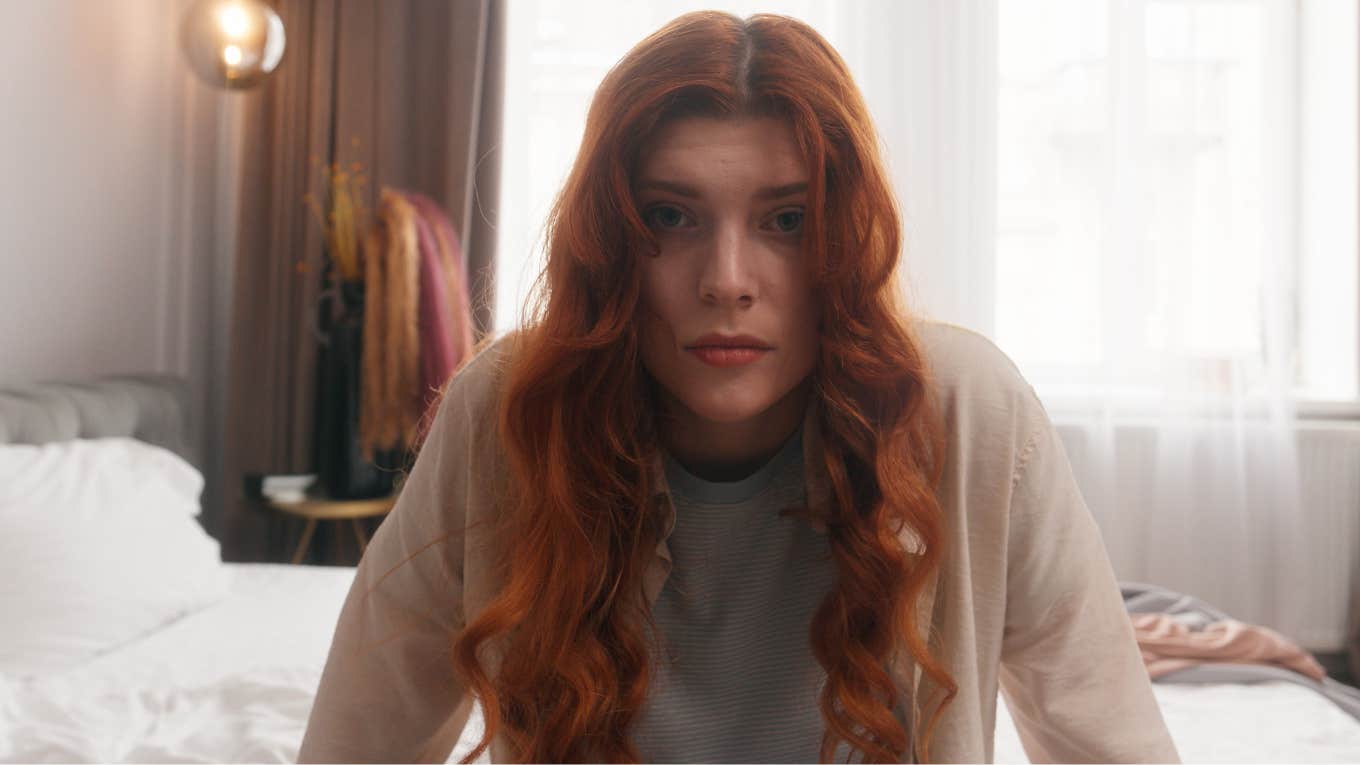 MAYA LAB | Shutterstock
MAYA LAB | Shutterstock Many introverted people have a natural preference for alone time because their social battery drains faster than the average person. They're often overly stimulated by social events that extroverted people find enjoyable, and drained by interactions that would otherwise energize and excite others. That's why journaling or putting their phones on silent are so important — and if someone's social battery is empty, they'll start doing these things without realizing.
Coping with social fatigue and exhaustion looks different for everyone, but it often requires alone time to recharge, hobbies to unwind, and practices that give an introverted person's brain a break from constant overwhelm. If they don't make space for it, sometimes avoiding social interactions and plans, they'll show up as a much less energized and happy version of themselves.
If someone's social battery is empty, they'll start doing these 11 things without realizing
1. They stop responding to texts
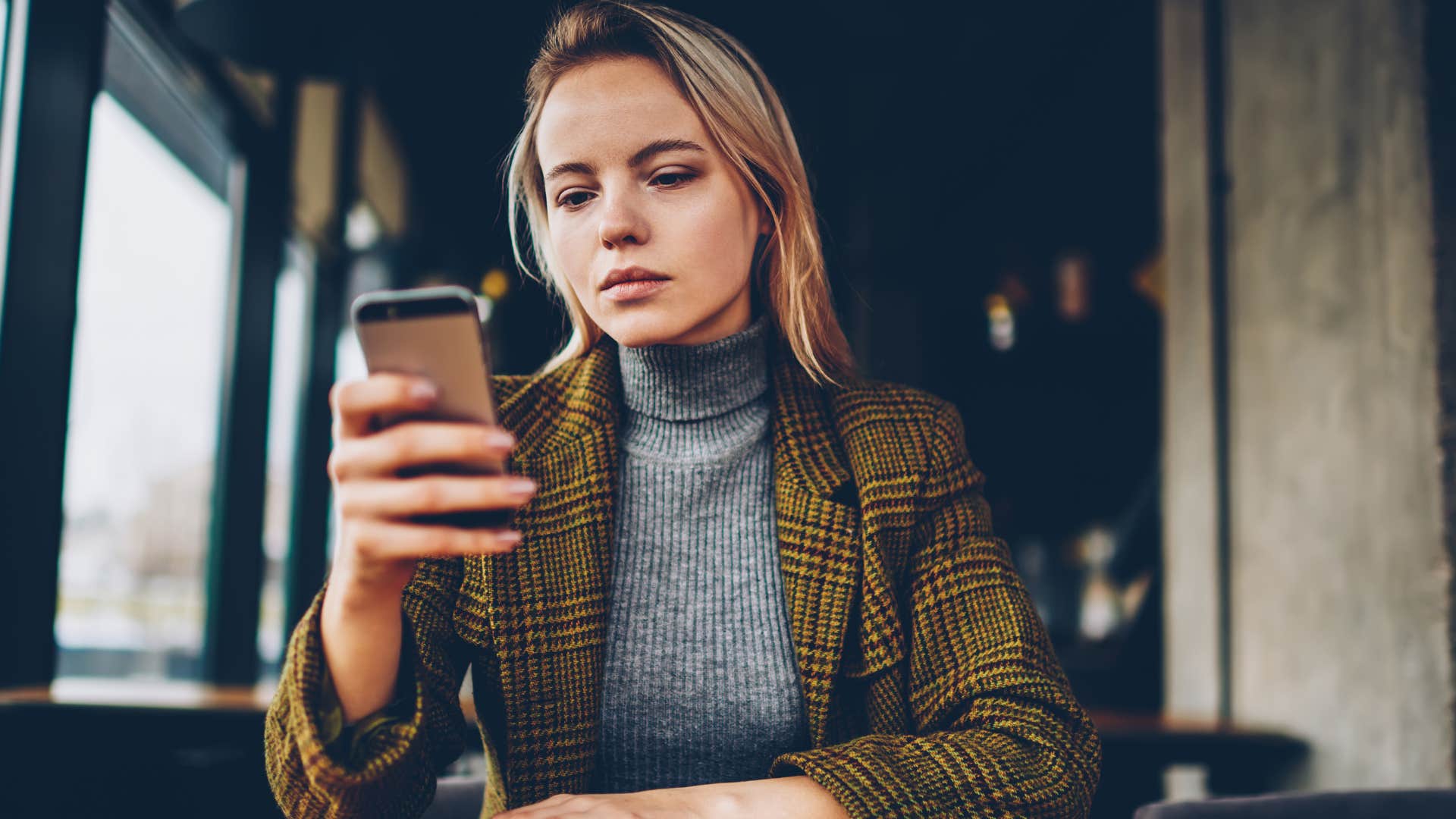 GaudiLab | Shutterstock
GaudiLab | Shutterstock
While texting to escape discomfort and social situations can often predict lowered self-confidence for introverted people, using it to express themselves and truly connect with others does the opposite. That's why introverted texting habits are more profound than they seem, because the intention behind them truly matters.
If someone's social battery is empty, they'll start being far more intentional with the time they spend on their phone. They may take longer to reply to text messages and even ignore phone calls to ensure their alone time goes uninterrupted.
2. They take the long way home
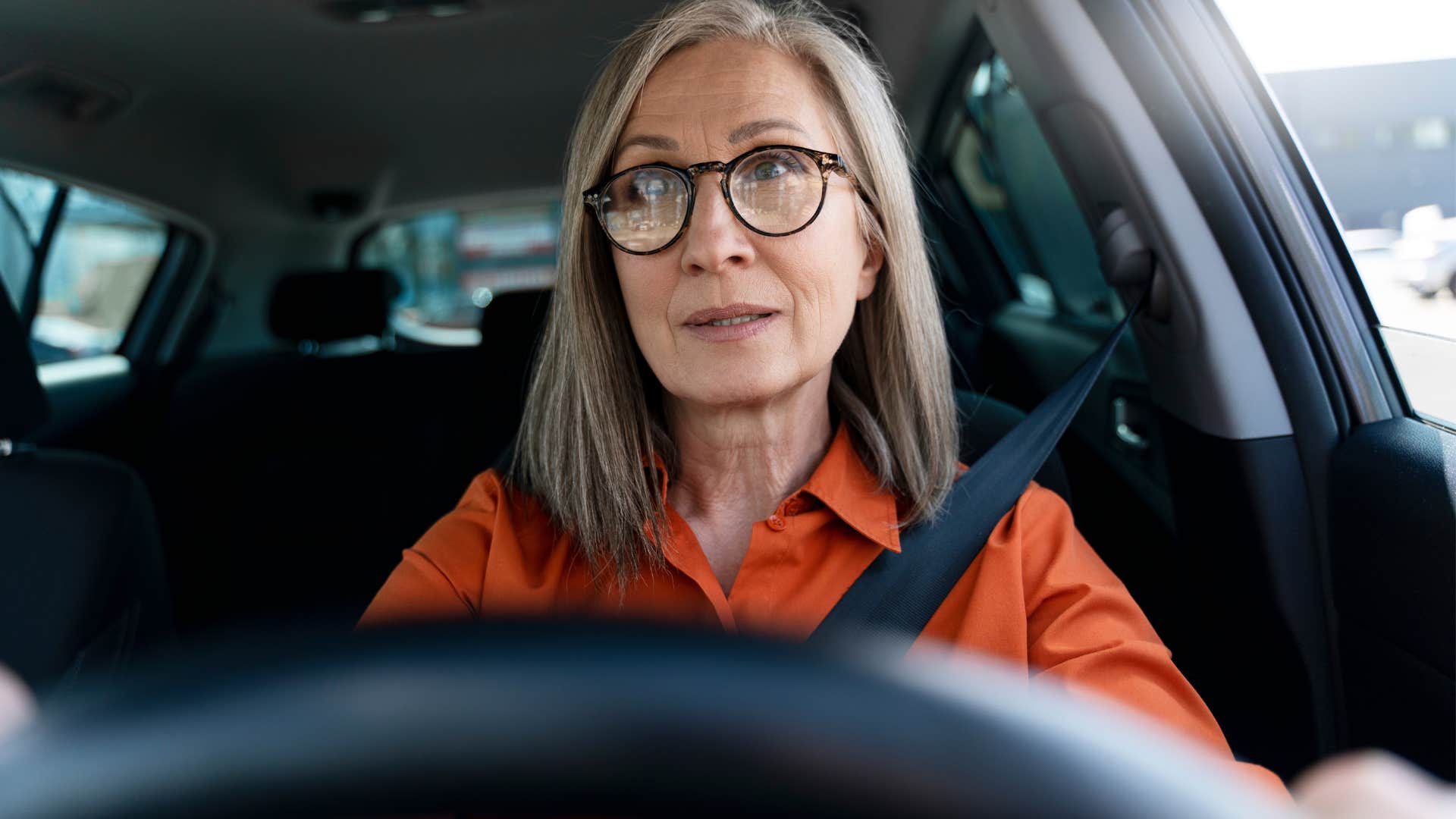 AYO Production | Shutterstock
AYO Production | Shutterstock
According to psychology expert Eric Solomon, driving is often cognitively demanding, which means that introverted people can turn their racing thoughts off and focus on the task without draining themselves. Coupled with the stimulation of music in the car, it's the perfect way for introverted people to unwind and relax if they can't seem to find that solace at home or with others.
So, if someone's social battery is empty, they'll start doing these things without realizing — taking the long way home and spending more time in the car to escape from the exhaustion or emotional turmoil they're feeling inside.
3. They hide during social events
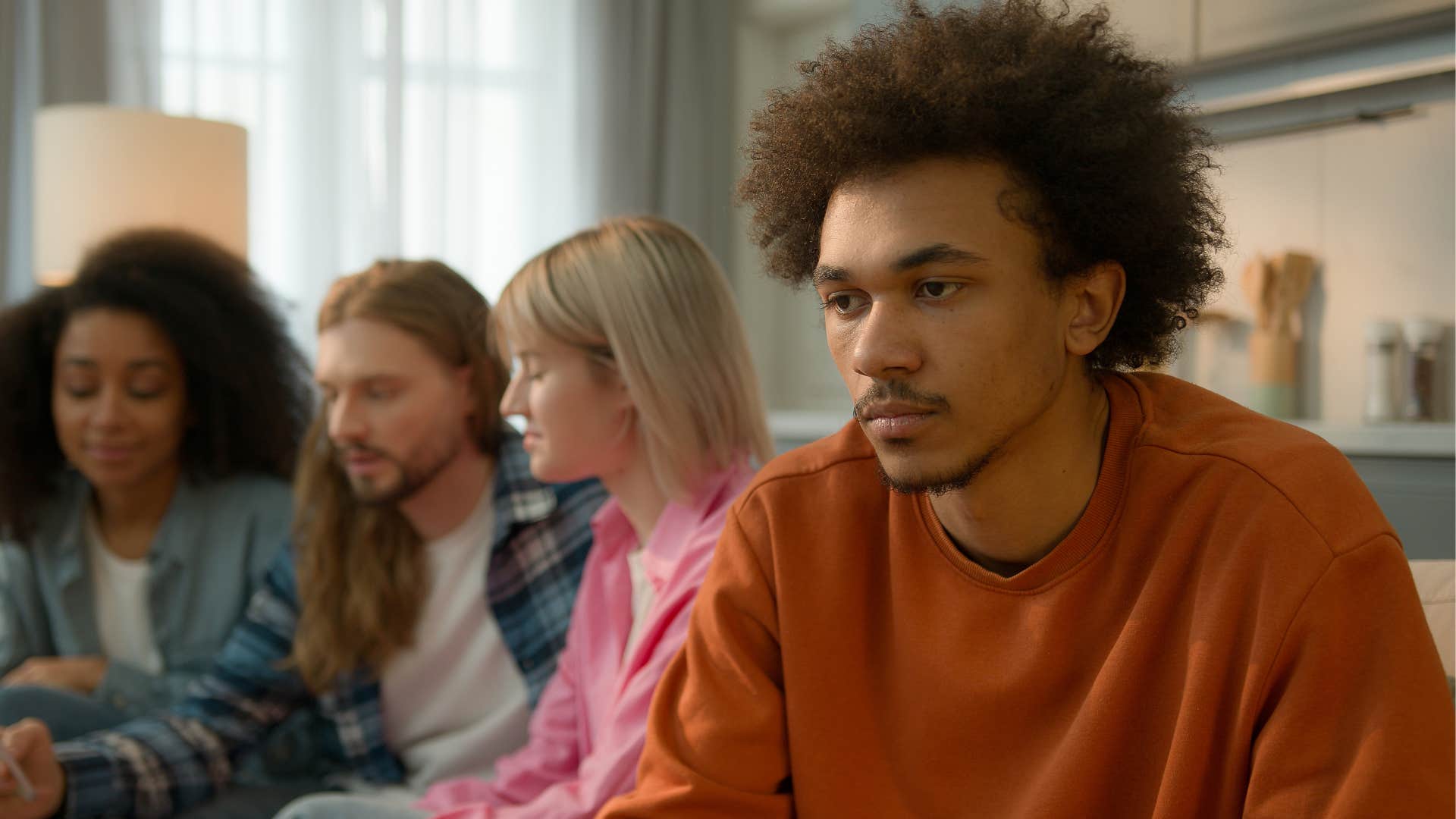 MAYA LAB | Shutterstock
MAYA LAB | Shutterstock
Whether they're pretending to take a phone call outside, retreating to the bathroom, or hiding in the corner of a party, if someone's social battery is empty, they'll start doing these things without realizing. While withdrawing from social events and prioritizing alone time to the point of isolation can often predict depressive symptoms, according to a study from BMC Psychiatry, introverts often use this space to recharge their batteries.
They have a preference for solitude, so when they're feeling overwhelmed or overstimulated, finding that space wherever they can is essential, even if it's in the midst of a crowded party or event.
4. They put their phone on silent
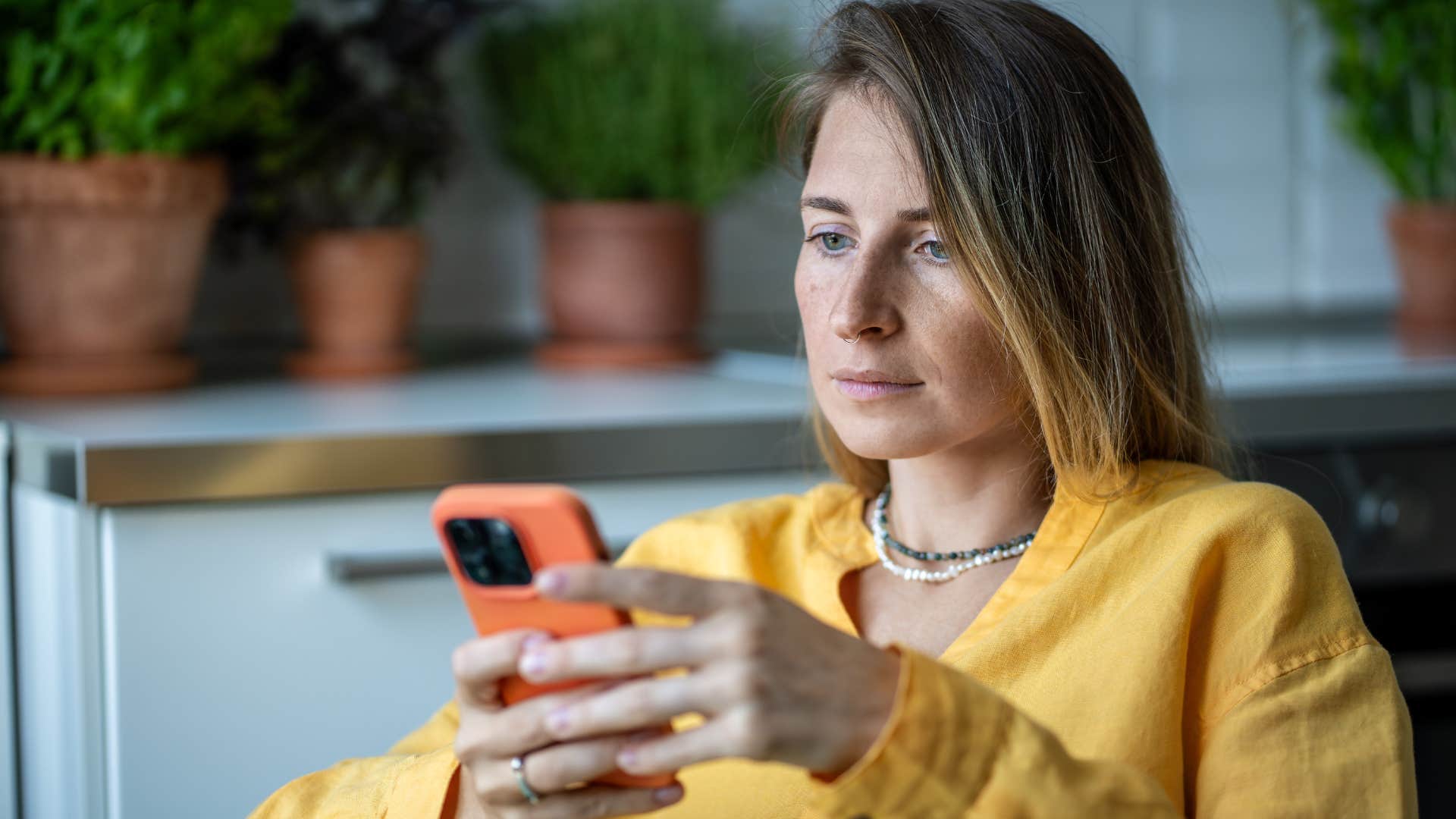 DimaBerlin | Shutterstock
DimaBerlin | Shutterstock
Many introverted people who need alone time to recharge their batteries will keep their phones on silent all the time, picking and choosing when they want to interact with people online.
When they're spending time alone, reflecting, enjoying their own company, or indulging in hobbies, they want to spend that time without distractions or interruptions — hence the constant "DND" setting on their phones. When they want to talk to someone or respond to a text, they do it on their own time.
5. They sleep more than normal
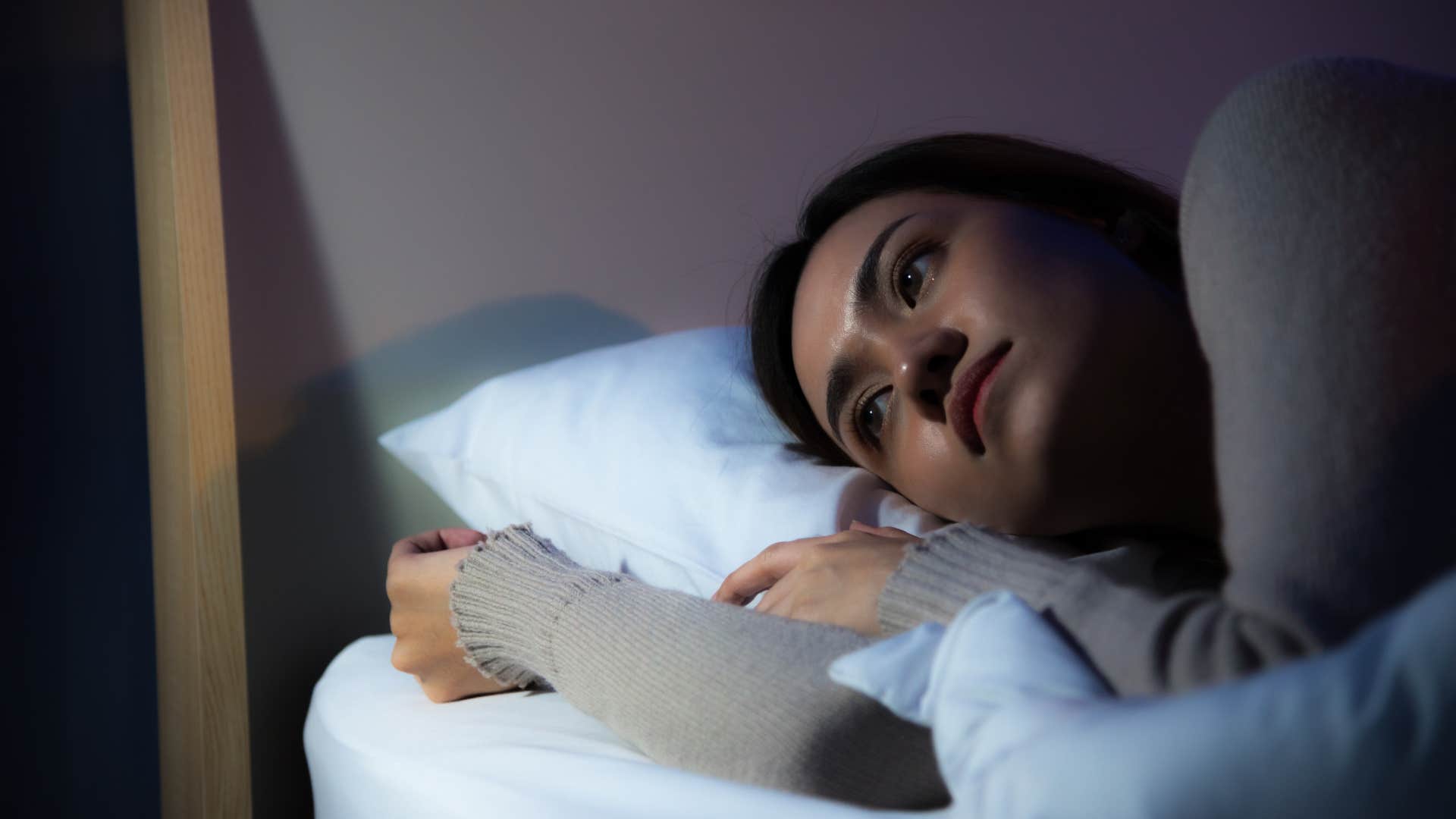 Supagrit Ninkaesorn | Shutterstock
Supagrit Ninkaesorn | Shutterstock
According to a study from Annual Review of Clinical Psychology, sleeping after a challenging emotional or cognitive experience often offers space for people to cope with those intense feelings. That's why many people sleep more than normal after their social battery is drained — they need a chance to rest their brains and reflect to show up as the best versions of themselves.
Even if they don't realize it, they're coping with internal overwhelm and overstimulation by resting their brains in the same kind of way that taking a long drive, resting alone, or journaling offers.
6. They binge-watch comfort shows
 SeventyFour | Shutterstock
SeventyFour | Shutterstock
When they're feeling emotionally overwhelmed or too socially stimulated, introverted people often resort to mindless entertainment to give their brains a break. According to psychology professor Jennifer V. Faygard, "comfort shows" and familiar movies often provide that space for rest, giving people a chance to unwind and rest without following too closely with a plotline or trying to figure out what's going to happen next.
Even if it seems subtle, having this kind of background noise in their daily lives can be the perfect blend of entertainment and comfort, without having to leave the house.
7. They doomscroll more often
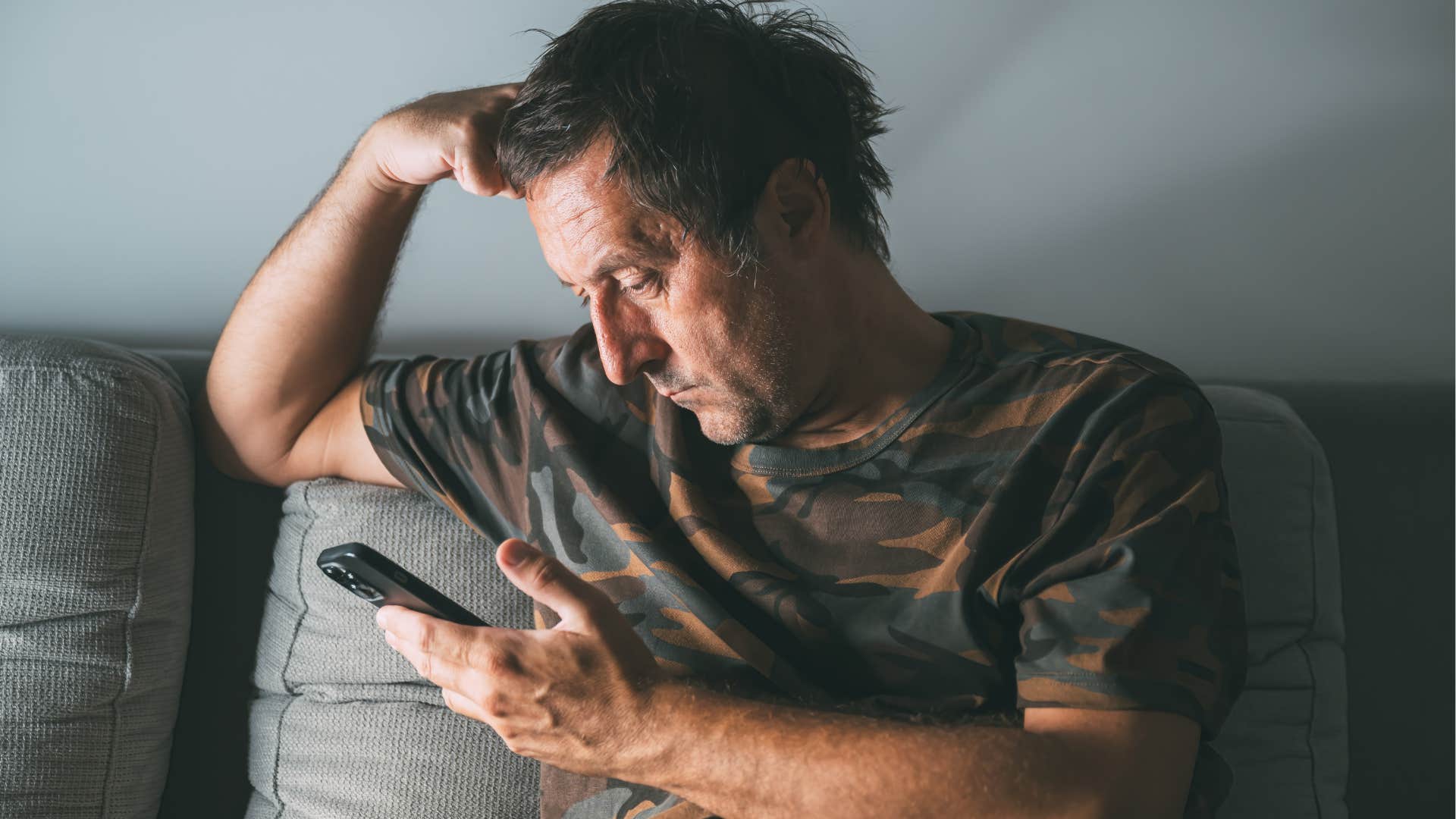 Bits And Splits | Shutterstock
Bits And Splits | Shutterstock
According to a study from Applied Research in Quality of Life, extroverted people tend to have stronger reactions to positive emotions and news on their phones when scrolling, while introverts are more likely to be burdened by negativity, fear, and anxiety. So, even if mindless entertainment and social media scrolling as a way to unwind and turn their brains off, using these platforms without intention can often lead to more disarray than they're worth.
Especially if they're subconsciously looking for bad news and negativity — hence "doomscrolling" — on their phones without realizing it, introverted people may be setting themselves up for further emotional exhaustion and turmoil by spending too much time on their phones.
8. They dread plans they were excited about
 Perfect Wave | Shutterstock
Perfect Wave | Shutterstock
Even if they were excited when they made the plans and were looking forward to doing them, if someone's social battery is empty, they'll start to dread these plans without realizing it. They'll subconsciously wish that someone would cancel at the last-minute or that they'd even get sick to avoid going — with their brains and bodies yearning for more alone time and rest.
In the same way your body tells you when someone isn't for you, it will remind you when you need to rest and unwind, even if it's draining and exhausting to navigate life alongside these signals. When you need rest, you need rest — there's no getting out of it.
9. They daydream about a weekend without plans
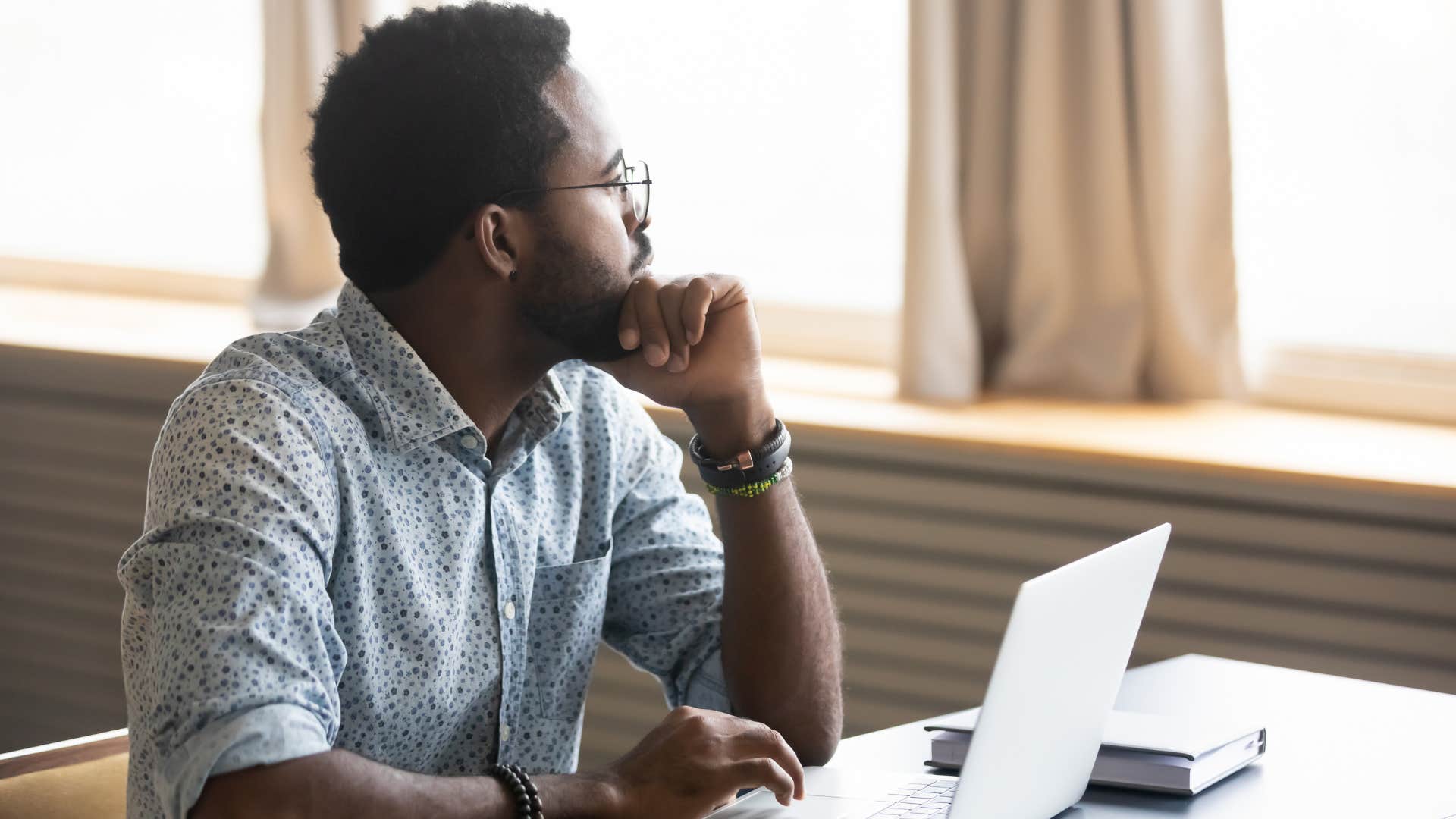 fizkes | Shutterstock
fizkes | Shutterstock
When your social battery is drained, the last thing you think about is making plans for the weekend. In fact, dealing with social interactions and casual conversations at work is enough to send a person over the edge when their social battery is drained so, of course, they're daydreaming about a weekend of nothing.
No phone calls, no conversations, no social obligations — just alone time, rest, and peace without distractions.
10. They're more irritable
 Krakenimages.com | Shutterstock
Krakenimages.com | Shutterstock
When introverted people are getting too much external input and feeling overstimulated in social interactions, it's often because their social battery is completely drained. Their brains are too busy yearning for solitude and grappling with social, emotional, and mental stimuli to put on a happy face, so it's not surprising that they tend to be more irritable.
So, if you notice someone struggling to add to a conversation, withdrawing themselves, or even being a bit more irritable than normal, they may just be exhausted and struggling to spark life in their drained social battery.
11. They're unusually quiet around loved ones
 PeopleImages | Shutterstock
PeopleImages | Shutterstock
Many introverted people digest much more information in their daily lives than extroverted people do — from passing conversations, to noises, and other people's emotions. They're quicker to burnout and experience emotional exhaustion, because if they don't have quiet space or alone time to digest these inputs, they're overwhelmed.
So, suppose you notice someone is withdrawn from a conversation or is much quieter than normal. In that case, there's a chance they're simply trying to unpack everything they're hearing, feeling, and experiencing without immediately resorting to anger or frustration.
Zayda Slabbekoorn is a senior editorial strategist with a bachelor's degree in social relations & policy and gender studies who focuses on psychology, relationships, self-help, and human interest stories.

